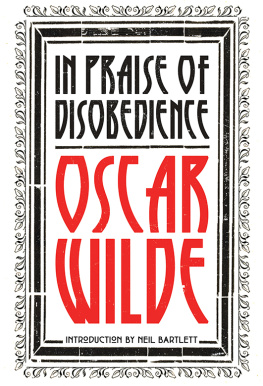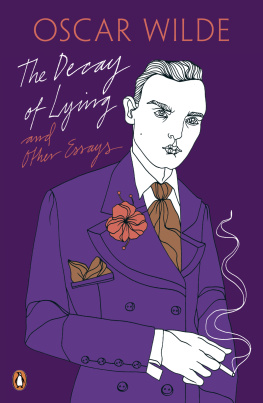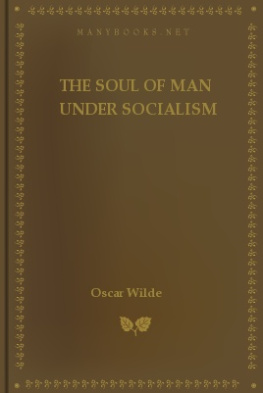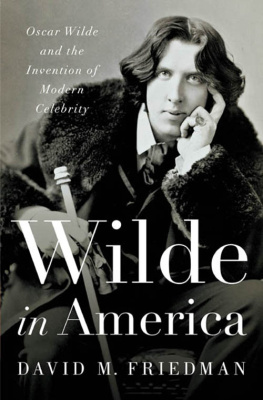Contents
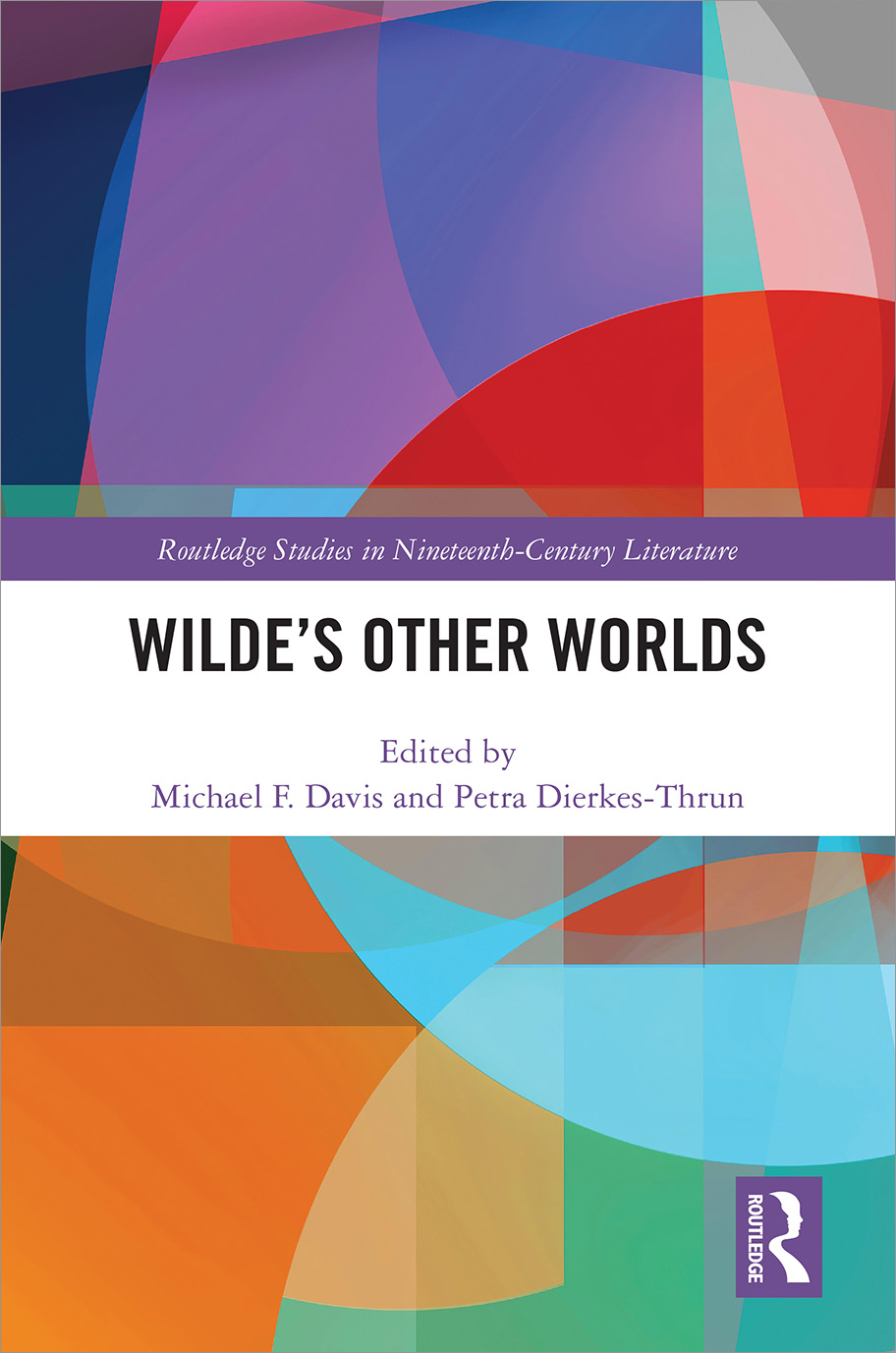
Wildes Other Worlds
Taking its cue from Baudelaires important essay The Painter of Modern Life, in which Baudelaire imagines the modern artist as a man of the world, this collection of essays presents Oscar Wilde as a man of the world who eschewed provincial concerns, cultural conventions, and narrow national interests in favor of the wider world and other worldssimultaneously real and imaginary, geographical and historical, physical and intellectualwhich provided alternative sites for exploration and experience, often including alternative gender expression or sexual alterity. Wilde had an unlimited curiosity and a cosmopolitan spirit of inquiry that traveled widely across borders, ranging freely over space and time. He entered easily and wholly into other countries, other cultures, other national literatures, other periods, other mythologies, other religions, other disciplines, and other modes of representation, and was able to fully inhabit and navigate them, quickly apprehending the conventions by which they operate.
The fourteen essays in this volume offer fresh critical-theoretical and historical perspectives not just on key connections and aspects of Wildes oeuvre itself, but also on the development of Wildes remarkable worldliness in dialogue with many other worlds. These encompassed contemporary developments in art, science, and culture, as well as other national literatures and cultures. Perhaps as a direct result of this cosmopolitan spirit, Wildes life and works have been taken up across the globe, as Wildes reception in India, Japan, and Hollywood illustrates. Many of the essays gathered in this volume are based on groundbreaking archival research, including some never-seen-before illustrations. Together, they open up important new comparative, transnational, and historical perspectives on Wilde that can shape and sharpen our future understanding of his work and impact.
Michael F. Davis is Associate Professor and Associate Chair of English at Le Moyne College in Syracuse, New York. He works in late-nineteenth- and early-twentieth-century literature and theory, with particular research interests in narratology, art and aesthetics, psychoanalysis, and sexuality. He has published essays on Walter Pater, Rainer Maria Rilke, Virginia Woolf, and James Joyce, as well as an essay on Robert Mapplethorpe and late-twentieth-century American political discourse. He is currently completing a book on Walter Pater, Walter Paters Latent Intelligence and the Conception of Queer Theory, and a book on Virginia Woolf, Virginia Woolfs Working Out: the Art of the Novel and the Law of the Father.
Petra Dierkes-Thrun (PhD in English and Cultural and Critical Studies, University of Pittsburgh, 2003) is Lecturer in Comparative Literature and Assistant Vice Provost at Stanford University, where she teaches nineteenth- and early-twentieth-century British and Western European literature and culture, as well as feminist, gender, and sexuality studies. Publications include Salomes Modernity: Oscar Wilde and the Aesthetics of Transgression (University of Michigan Press, 2011) as well as articles on Oscar Wilde, Henrik Ibsen, George Bernard Shaw, Arthur Symons, Stphane Mallarm, Richard Strauss, Victoria Cross, Rachilde, fin-de-sicle realism, and New Woman literature. She is an editorial board member of Volupt: Interdisciplinary Journal of Decadence and was one of the founding editors of The Latchkey: Journal of New Woman Studies.
Routledge Studies in Nineteenth-Century Literature
29 Questions of Authority
Italian and Australian Travel Narratives of the Long Nineteenth Century
Laura Olcelli
30 Branding Oscar Wilde
Michael Gillespie
31 Hardy Deconstructing Hardy
A Derridean Reading of Thomas Hardys Poetry
Nilfer zgr
32 Jane Austens Geographies
Robert Clark
33 Vision and Character
Physiognomics and the English Realist Novel
Eike Kronshage
34 Melville and the Question of Meaning
David Faflik
35 Inventing the Popular
Printing, Politics, and Poetics
Bettina Lerner
36 Writing Place
Mimesis, Subjectivity and Imagination in the Works of George Gissing
Rebecca Hutcheon
37 Wildes Other Worlds
Edited by Michael F. Davis and Petra Dierkes-Thrun
For a full list of titles published in the series, please visit www.routledge.com
First published 2018
by Routledge
711 Third Avenue, New York, NY 10017
and by Routledge
2 Park Square, Milton Park, Abingdon, Oxon OX14 4RN
Routledge is an imprint of the Taylor & Francis Group, an informa business
2018 Taylor & Francis
The right of the editors to be identified as the authors of the editorial material, and of the authors for their individual chapters, has been asserted in accordance with sections 77 and 78 of the Copyright, Designs and Patents Act 1988
All rights reserved. No part of this book may be reprinted or reproduced or utilised in any form or by any electronic, mechanical, or other means, now known or hereafter invented, including photocopying and recording, or in any information storage or retrieval system, without permission in writing from the publishers.
Trademark notice: Product or corporate names may be trademarks or registered trademarks, and are used only for identification and explanation without intent to infringe.
Library of Congress Cataloging-in-Publication Data
CIP data has been applied for.
ISBN: 978-0-8153-6359-0 (hbk)
ISBN: 978-1-351-10891-1 (ebk)
Typeset in Sabon
by codeMantra
We would like to express our heartfelt gratitude to Joe Bristow for his 2012 National Endowment for the Humanities (NEH) summer seminar entitled Oscar Wilde and His Circle. We are indebted to Joe for so generously sharing his deep and expansive knowledge of Wilde and his worlds with us, for his friendship and support, as well as his invaluable advice throughout the many stages of this project. We also thank all our fellow participants in that seminar, with whom we had many fascinating and insightful discussions that helped shape our own thinking on Wildes life and works. We would also like to acknowledge the wonderful staff at the William Andrews Clark Memorial Library, where the seminar was held, who made every effort to support and encourage our research, as well as that of several contributors to this volume.
A big round of thanks is also due to David Charles Rose and The OScholars, for organizing the international conference Wilde Days in Paris at the Institut Irlandais in the summer of 2014, where the original idea of this volume was born and David and other participants in that conference encouraged us to pursue it. No scholarly book is ever complete without the engagement of our colleagues in the field, and so we would like to express our sincere gratitude to the anonymous expert readers for Routledge. Their constructive and helpful suggestions helped us improve and bring this project to fruition. Our work on this volume was partially supported through generous financial assistance from Le Moyne College and the Clayman Institute for Gender Research at Stanford University, for which we are also very grateful.
We have used the following abbreviations for in-text citations to Oscar Wildes writings throughout:


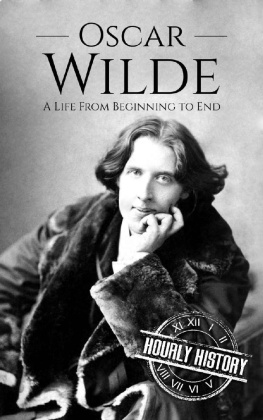
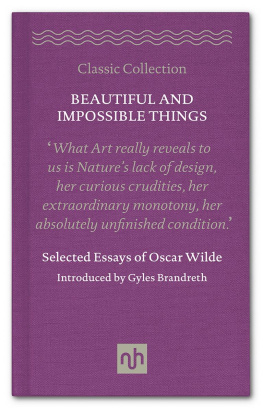
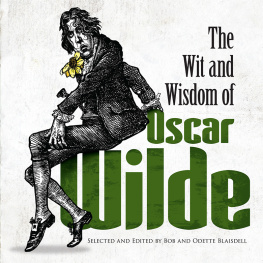
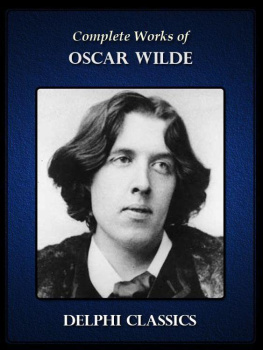
![Wilde Oscar - The secret life of Oscar Wilde: [an intimate biography]](/uploads/posts/book/228457/thumbs/wilde-oscar-the-secret-life-of-oscar-wilde-an.jpg)
